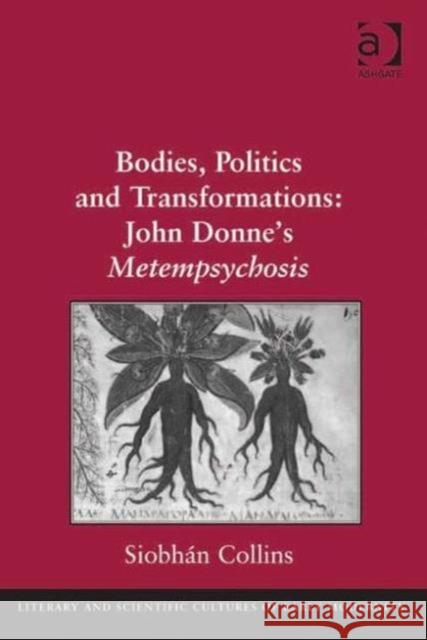Bodies, Politics and Transformations: John Donne's Metempsychosis » książka
Bodies, Politics and Transformations: John Donne's Metempsychosis
ISBN-13: 9781409406358 / Angielski / Twarda / 2013 / 212 str.
Bodies, Politics and Transformations: John Donne's Metempsychosis
ISBN-13: 9781409406358 / Angielski / Twarda / 2013 / 212 str.
(netto: 699,68 VAT: 5%)
Najniższa cena z 30 dni: 705,23
ok. 22 dni roboczych.
Darmowa dostawa!
Since the beginning of the twentieth century, critics have predominantly offered a negative estimate of John Donne's Metempsychosis. In contrast, this study of Metempsychosis re-evaluates the poem as one of the most vital and energetic of Donne's canon. SiobhAn Collins appraises Metempsychosis for its extraordinary openness to and its inventive portrayal of conflict within identity. She situates this ludic verse as a text alert to and imbued with the Elizabethan fascination with the processes and properties of metamorphosis. Contesting the pervasive view that the poem is incomplete, this study illustrates how Metempsychosis is thematically linked with Donne's other writings through its concern with the relationship between body and soul, and with temporality and transformation. Collins uses this genre-defying verse as a springboard to contribute significantly to our understanding of early modern concerns over the nature and borders of human identity, and the notion of selfhood as mutable and in process. Drawing on and contributing to recent scholarly work on the history of the body and on sexuality in the early modern period, Collins argues that Metempsychosis reveals the oft-violent processes of change involved in the author's personal life and in the intellectual, religious and political environment of his time. She places the poem's somatic representations of plants, beasts and humans within the context of early modern discourses: natural philosophy, medical, political and religious. Collins offers a far-reaching exploration of how Metempsychosis articulates philosophical inquiries that are central to early modern notions of self-identity and moral accountability, such as: the human capacity for autonomy; the place of the human in the a great chain of being'; the relationship between cognition and embodiment, memory and selfhood; and the concept of wonder as a distinctly human phenomenon.











